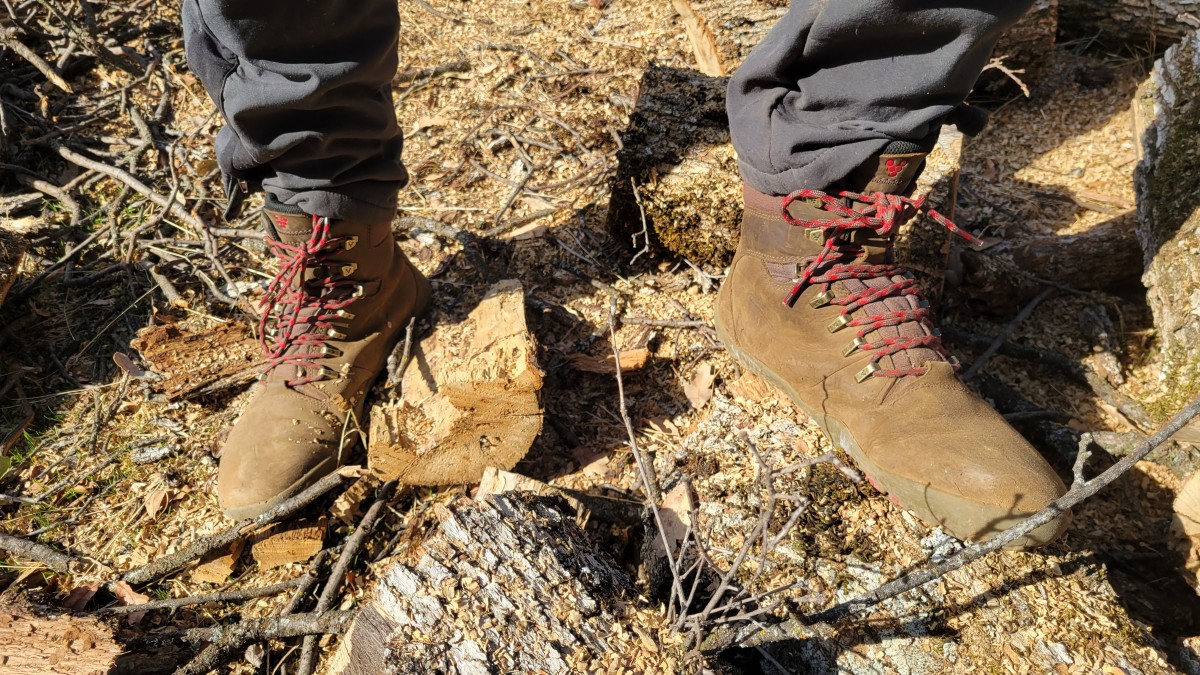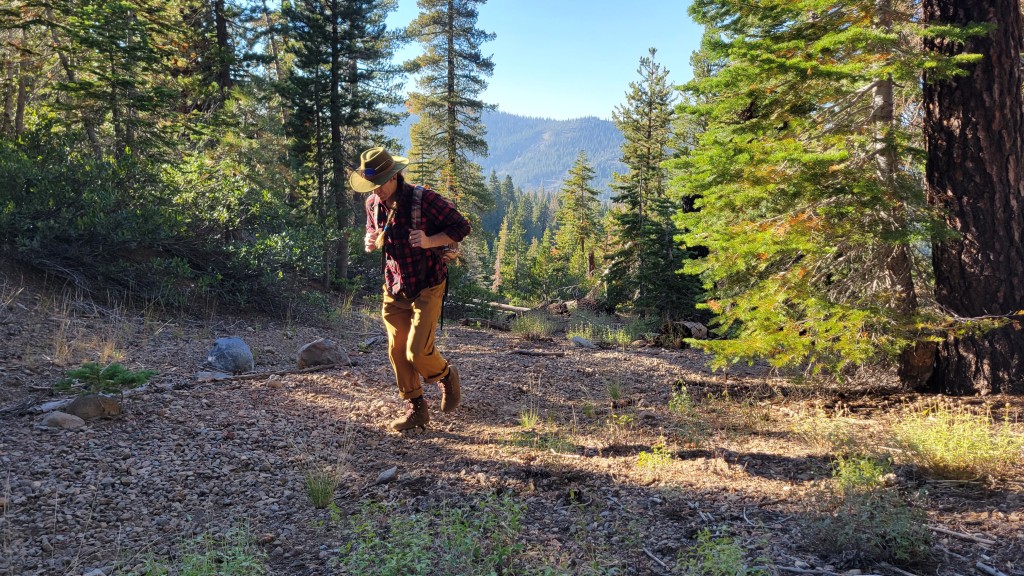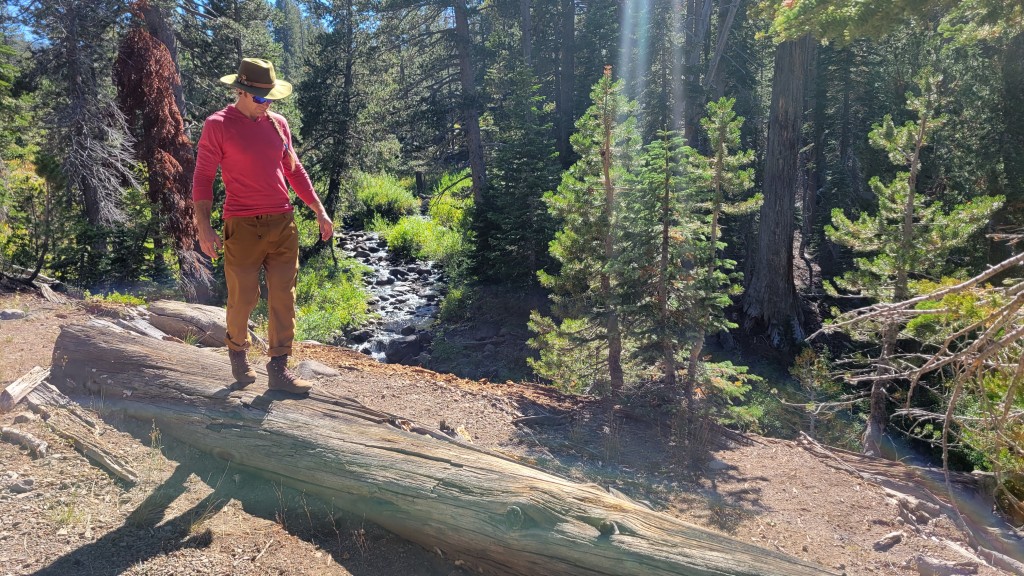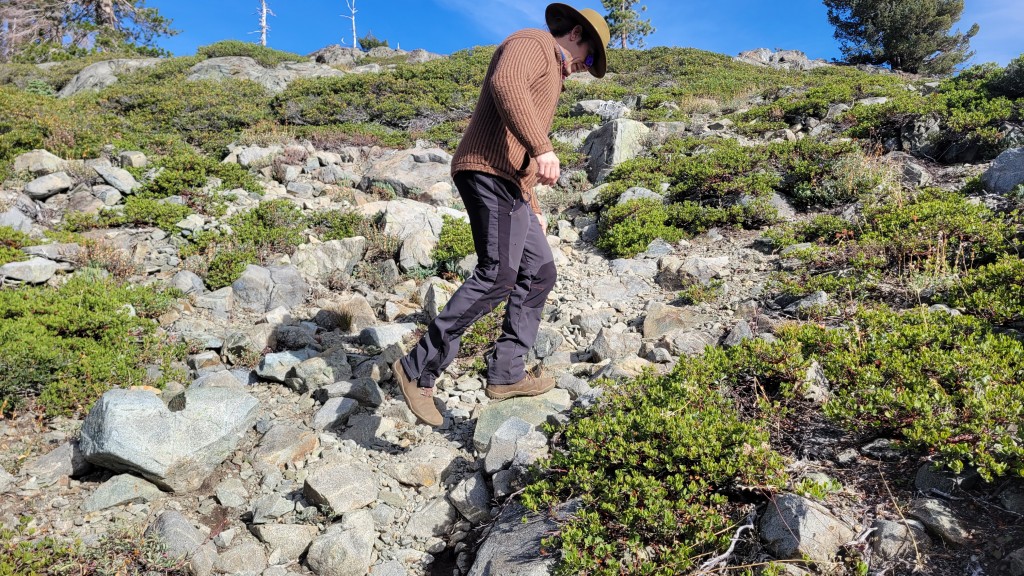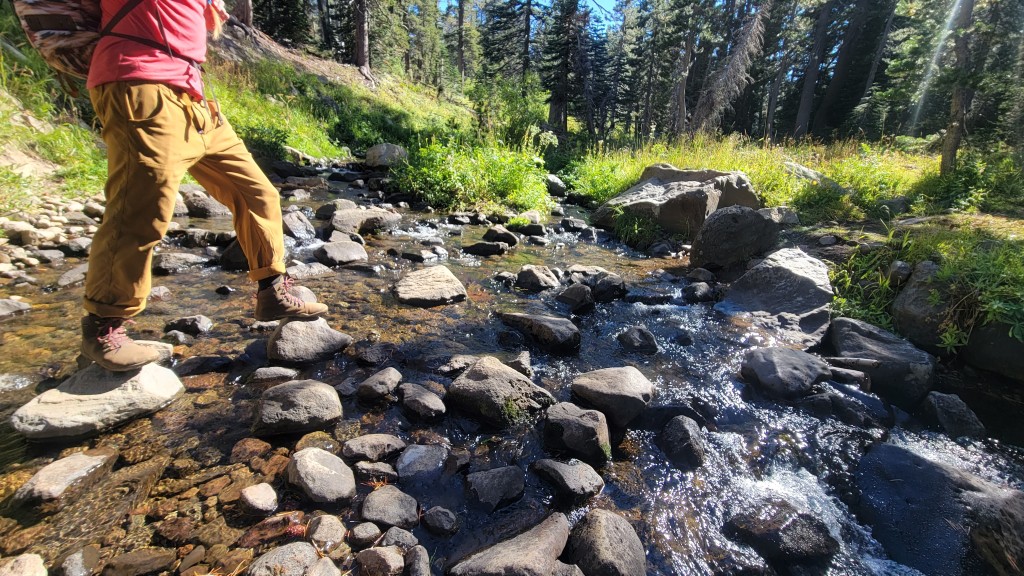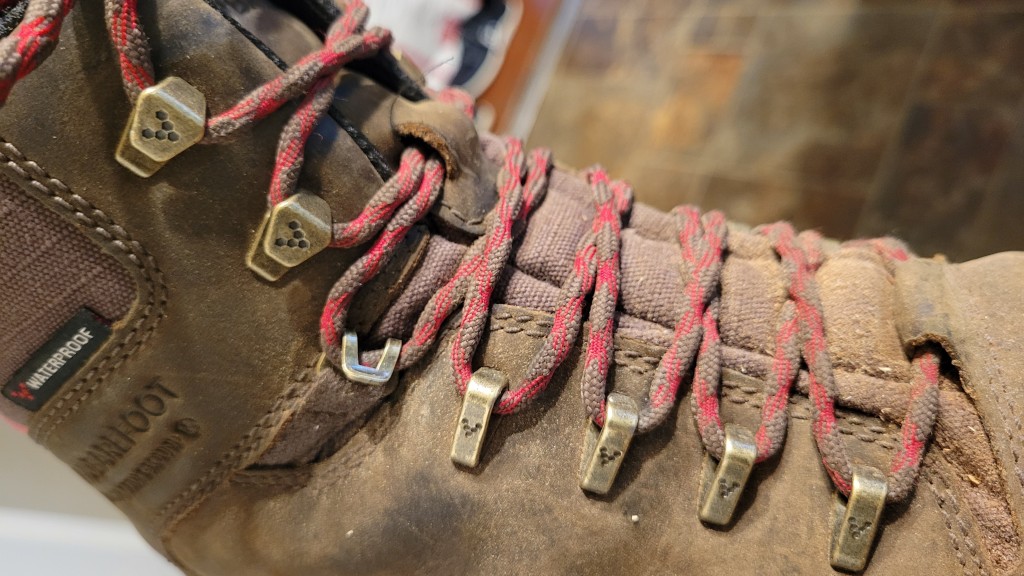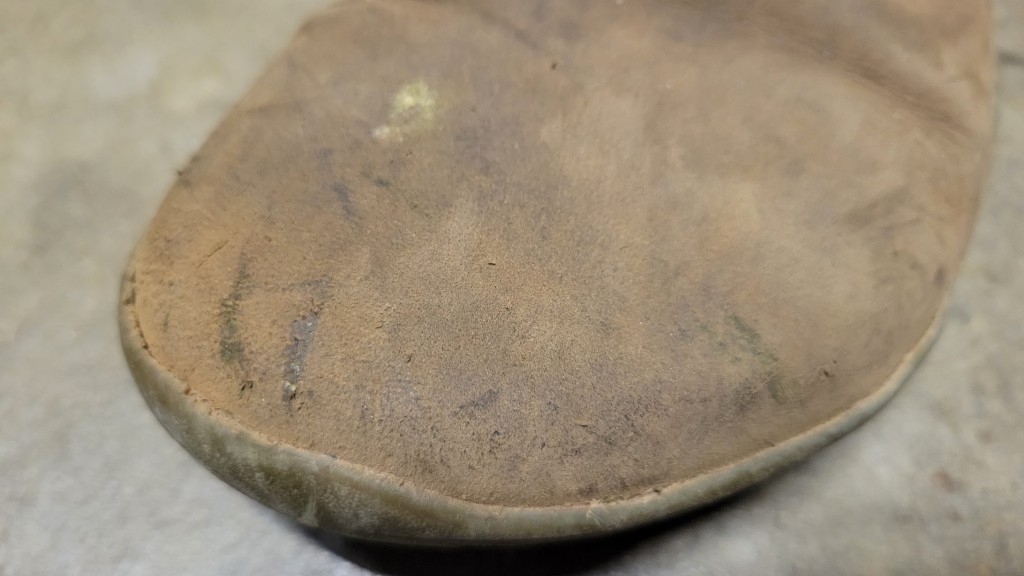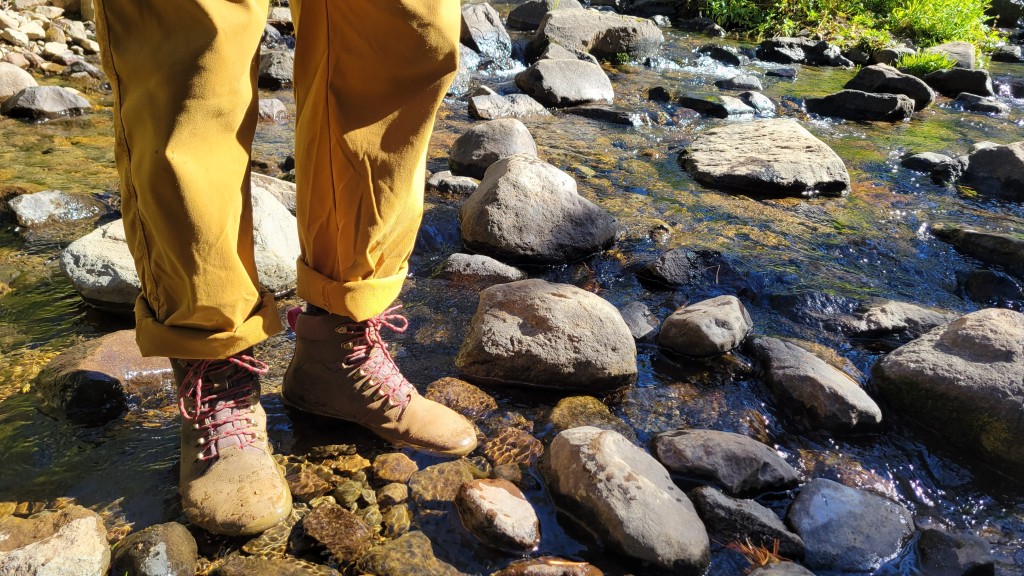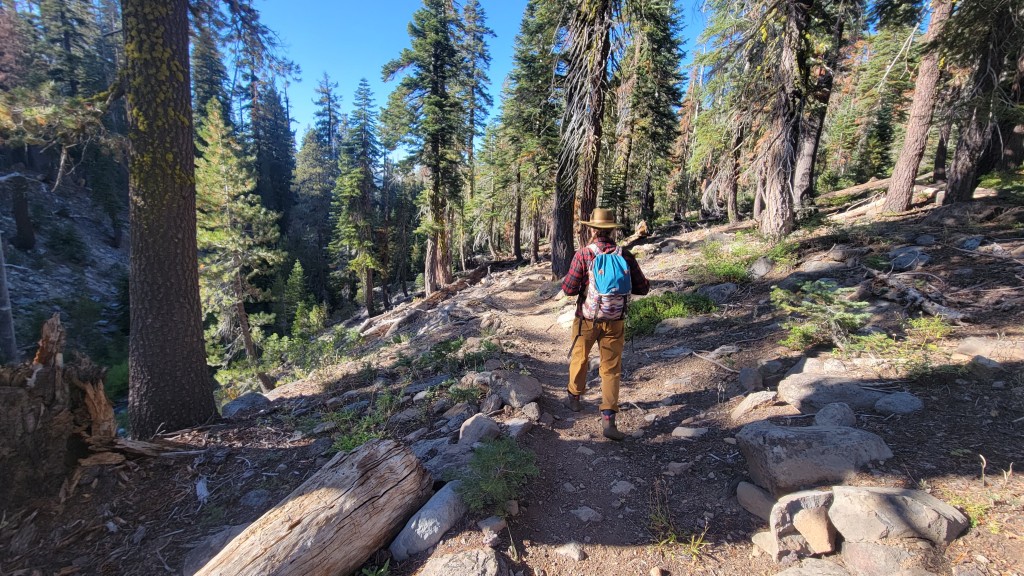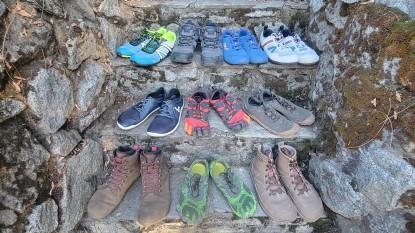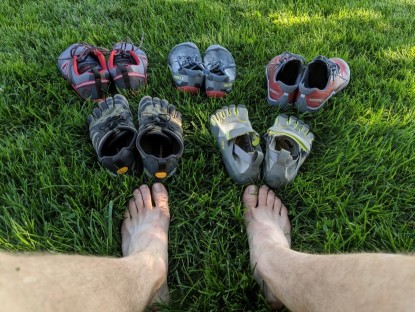Our Verdict
Compare to Similar Products
 This Product
Vivobarefoot Tracker II FG | |||||
|---|---|---|---|---|---|
| Awards | Best Barefoot Boot for Hiking and Work | Best Overall Barefoot Shoe | Best Barefoot Gym Shoe | Best Lightweight Barefoot Shoe | Best Bang For Your Buck |
| Price | $240 List $240.00 at Amazon | $135 List $125.00 at Amazon | $160 List $109.95 at Amazon | $79.68 at Amazon Compare at 3 sellers | $42 List $41.99 at Amazon |
Overall Score  |
|||||
| Star Rating | |||||
| Bottom Line | No trail is too tough for this well-made and stable barefoot hiking boot | The next evolution of FiveFinger shoe built to tackle any trail condition | Whether road running or training in the gym, these shoes will up your game | These minimalist shoes will help you feel one with the ground and all its intricacies | If you're looking for a high-value trail runner option then look no further |
| Rating Categories | Vivobarefoot Tracke... | Vibram V-Trail 2.0 | Vivobarefoot Primus... | Merrell Vapor Glove 6 | Whitin Cross Trainer |
| Ground Feedback (30%) | |||||
| Stability (20%) | |||||
| Traction (20%) | |||||
| Weight (15%) | |||||
| Durability (15%) | |||||
| Specs | Vivobarefoot Tracke... | Vibram V-Trail 2.0 | Vivobarefoot Primus... | Merrell Vapor Glove 6 | Whitin Cross Trainer |
| Style | Barefoot | Barefoot | Barefoot | Barefoot | Barefoot |
| Best For | Hiking | Trail running | Trail running | Trail running | Trail running |
| Stack Height | 5.5 mm (3 mm base + 2.5 mm lugs) | 5.7 mm (3.7 mm base + 2 mm insole) | 7 mm (4 mm base + 3 mm insole) | 6 mm (4 mm base + 2 mm lugs) | 6.5 mm (5 mm base + 1.5 mm insole) |
| Heel to Toe drop | 0 mm | 0 mm | 0 mm | 0 mm | 0 mm |
| Measured Weight (per shoe) | 19.0 oz (size 10) | 7.3 oz (size 43EU) | 8.4 oz (size 10) | 5.6 oz (size 9.5) | 10.2 oz (size 43EU) |
| Outsole | 55% Synthetic rubber, 20% natural rubber, 25% additives | 3.7mm, Vibram megagrip rubber w/3D cocoon mesh | Primus outsole (synthetic rubber) | Vibram ecostep, 30% recycled rubber, 2mm lug | Rubber |
| Midsole | None | None | None | None | None |
| Insole | RPET | 2mm EVA | Ortholite 98% recycled PU foam | 30% recycled EVA foam wrapped in 100% recycled mesh | Yes, not specified |
| Upper Material | Leather/cotton | Water repellent polyester | RPET, polyester, polyurethane | Recycled breathable mesh | Stretchy mesh |
Our Analysis and Test Results
Of the barefoot boots that we tested, the Tracker II FG quickly proved its worth. Not only is the leather upper super durable, easily handling some hefty work days in the woods, but it also hugs the foot and ankle like a heavy work glove, lending confidence to tread into some pretty hairy conditions. This toughness has an underlying sensitivity, however. The base of the outsole, at just 2.5mm, is thin enough to allow you to feel every contour of the ground below while affording the added protection of a puncture-resistant finish. Add to this the 4mm lugs, and you will soon feel why this boot will take you anywhere that you want to go.
Performance Comparison
Ground Feedback
This boot proves you don't have to sacrifice ground feedback for durability, versatility, and all-around toughness. Vivobarefoot laid the foundation for superior ground feel with this boot's 2.5mm rubber outsole base. Despite the additional few millimeters of thickness, the thermal insole helps maintain thermoregulation inside the boot while still maintaining the ground feedback of a barefoot platform.
The combination of the puncture-resistant layer on the outsole and the well-padded thermal insole does create some additional space between your foot and the ground compared to the more minimalist barefoot contenders. Because of this, it won't feel quite as sensitive as those platforms. Yet, for a burly boot that kept our foot protected in all conditions, we were quite surprised and impressed by the barefoot feel of the Tracker II FG.
Stability
The toe box of the Tracker II FG is wide. At almost 5 inches, it proved to allow plenty of room for our feet to naturally splay. This represents the foundation of this boot's stability. Building from there, it integrates a leather upper that's welded to the outsole, providing excellent waterproofness. A metal-pronged lacing system secures the whole platform to the foot, firmly hugging all the way up just past the ankle. And it stops there, still allowing nearly full mobility in the ankle.
There was a breaking-in period for the Tracker II FG to feel totally comfortable. The stiff leather put pressure on the ankle for several miles until we warmed them up. After the break-in period, however, they fit like they were made just for our feet. The combination of the sensitive, puncture-resistant outsole with the comfortable ankle-hugging upper makes this contender our superstar of barefoot stability.
While it initially seemed like this boot's roominess may negatively affect stability, that wasn't our experience. If your foot can move around inside a shoe, it may feel less stable on uneven terrain. But the lacing system on the Tracker II FG firmly holds the foot in place. Not only did our foot not slide on the wide sole, but it felt more stable in its ability to naturally splay.
Traction
When choosing a hiking or work boot, you want to ensure that the tread is built to suit your environment. Some treads are built for mud, others for rock, and the best are designed to handle any condition. Vivobarefoot tried and succeeded in this effort with the Tracker II FG. We found the outsole of these boots to be among the best when traversing tricky terrain — whether sandy slopes or slick rocks.
The simple yet effective design of the beefy 4mm lugs on the bottom of this boot's outsole do a superb job at gripping the ground, whether soft or hard. The space between the raised lugs allows the sole to easily shed dirt, mud, and gravel. As you move forward up the mountain, you won't be bringing any of it with you in these hikers. A key note is that the soles grip the ground, whether wet or dry, which is important when traversing slick, wet river rocks. Rest assured that you won't have to worry about slipping while wearing the Tracker II FG.
Weight
When placed alongside super minimalist barefoot shoes, a hiking boot is likely to place at the bottom of the list for weight. Sure enough, at 19 ounces per shoe, the Tracker received its lowest score in this metric. We'd like to take the opportunity to highlight that what gives this boot its weight is also what fortifies its strengths. The durable and padded leather upper, reinforced lace loops, and 4mm lugs all lend to the stability, durability, and traction that make this boot top of its class.
Despite the added weight, we never felt like this boot was heavy underfoot. Compared to other work or hiking boots, the Tracker II FG feels lightweight. Heading into a long work or trail day, we were comforted knowing that our choice of footwear would protect our precious pads no matter what conditions we encountered. Additionally, this boot proved to be fully waterproof, which means that you won't have to worry about the added weight of soggy socks.
Durability
These barefoot boots are designed from the foundation up with durability in mind. While the designers clearly wanted you to experience the feel of a barefoot shoe, they didn't accept that a thin sole has to lack toughness. Vivobarefoot's Pro5 puncture resistant finish on the outsole aims to prevent your foot from being poked by sharp objects that you may happen to step on along your adventures. We can attest to this ability after many long days of sawyer work in the woods of northern California while wearing this boot. Not once did we feel like our feet were in danger of being compromised despite plenty of sharp and jagged objects to navigate.
Likewise, these boots perform admirably on the trail. The tough outsole is welded to the thick leather upper, providing trail-tested waterproofness. The metal eyelets and speed hooks work in favor of the boot's longevity while providing a strong foundation for the laces to hold your foot and ankle firm.
The only potential weak point that we found on these boots is the crease points where the upper meets the outsole weld. This has a tendency to delaminate with a lot of use and abuse, which, over time, could decrease the waterproofness of the boot. Yet we subjected these boots to a lot of abuse, and they still feel like they've got a ton of life left. No question the Tracker will last you many hundreds of miles.
Should You Buy the Vivobarefoot Tracker II FG?
If you're looking for a burly boot for the worksite or your next adventure, then we wholeheartedly recommend the Tracker II FG. While it may be too much for many pursuits, if you need ankle stability, excellent traction, and the natural feel one would expect from a leading barefoot company, this boot checks all your boxes. Vivobarefoot is so confident that you'll love this boot that they even offer a 100-day trial period. If there are any issues during that period, return the boots for a refund. No questions asked. Even if you're unaccustomed to barefoot footwear, we encourage you to give these hikers a try. The added stability offered by the ankle top design and the puncture-resistant outsole offer much more stability and protection than more minimalist barefoot shoes.
What Other Barefoot Shoes Should You Consider?
An ankle top boot may not be the right footwear for more moderate pursuits. If you're looking for a barefoot hiking shoe that sits below the ankle, check out the Xero Shoes DayLite Hiker Fusion. If you want to go light and fast over the mountain trails, consider trying the Vibram V-Trail 2.0. And if you're thinking, “Wow, barefoot hiking shoes are way too expensive,” then you may want to take a look at the Whitin Cross Trainer hiking shoe.


